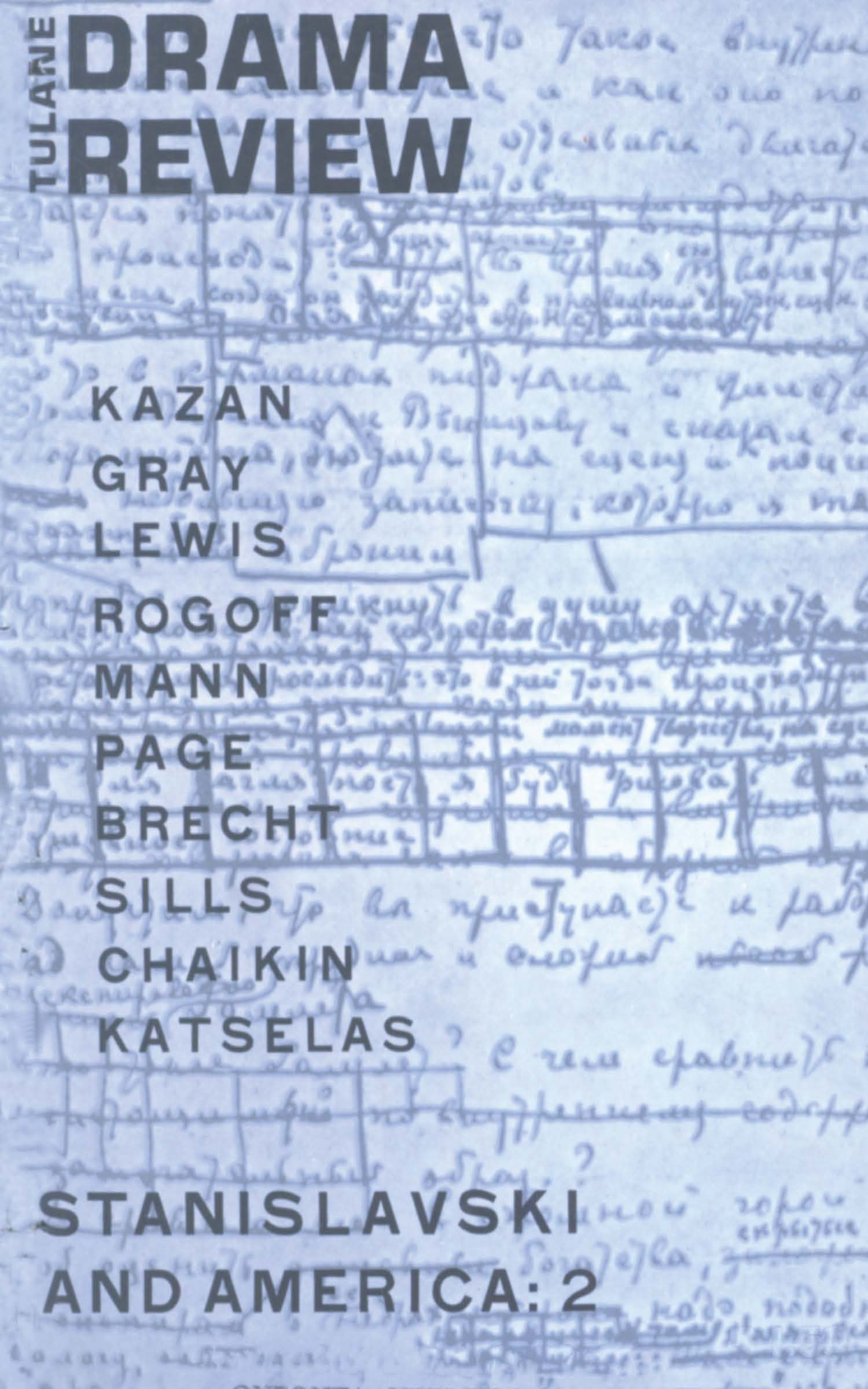Article contents
Jean Vilar: Unadorned Theatre for the Greatest Number
Published online by Cambridge University Press: 23 November 2021
Extract
Once he has arrived on stage, he moves sparingly; his presence is enough to establish a vitality that other important actors strive for with nervous pacings and hand flurries and vocal hysterics and stares that hypnotize and exact tribute from the rest of the cast. It is not so much, I think, that Vilar scorns the habitual run of acting props as that he does not need them. He is of medium height, bony, black-haired and hollowcheeked, with hands that look large but are never obstructive. His voice is unusually deep and has a rasp; it is a long remove from the throatiness of Olivier and the calculated resonance of Lunt. When he speaks poetry it has the directness of prose. When he speaks prose it is punctuated with caesuras and emphases that give it the quality of verse. He is possibly the most ascetic and statuesque performer of our time.
- Type
- Research Article
- Information
- Copyright
- Copyright © The Tulane Drama Review 1960
References
Notes
1 From his thirteenth to his twentieth year, Vilar earned his living as a jazz violinist.
2 The TNP is the only theatre in Paris I visited where the usherettes can pass along the aisles when the strapontins are occupied. If Paris were New York, the Fire Commissioner would have closed every theatre but the TNP long ago.
3 Readers will be familiar with productions like last season's revival in Paris o£ Sardou's L'Affaire des Poisons, in which it was not easy to distinguish the gorgeously garbed actors from the gorgeously decorated columns.
4 In Morts sans Sépulture, for example, or in Sartre's movie version of The Crucible, Les Sorcieres de Salem.
5 Büchner died at the age of 24; after Danton, he wrote Woyzeck, Leonce, and Lena, a novel Lenz, and translated two Victor Hugo plays, Lucrèce Borgia and Marie Tudor, into German.
6 The volume of sound in the “incidental” music of many current French plays—not to mention nouvelle vague movies—is enough to lift spectators seated near the amplifiers clean off their armrests.
7 Gatti has been a newspaper correspondent in Central America. He recently wrote the scenario for a movie about North Korea, which was banned before its first public showing.
8 The “buffalo-toad” of the title is the insignia of Don Tiburcio's regime.
9 The season at the Oddon consisted of: La Petite Molière by Anouilh, adapted from an embarrassing movie scenario that had never been filmed; Tête d'Or, an early work by Claudel, about which the only positive statement I can make is that it is probably the best play ever written by a poet of 21; Marivaux’ Les Fausses Confidences, in the same program as Prévért's and Barrault's mime sequence, Baptiste, from the film Les Enfants du Paradis; and Rhinocéros, in which Ionesco committed himself to his first didacticism, because now “I know everything … everything … everything … and other things besides….” (From “Ionesco interviews Ionesco” in France-Observateur)
10 “Poetry” and “poetic” are the most vulgarized words in today's French lexicon of reviewing, and are flung about with the abandon of the adjective “creative” and the abomination “creativity” in the U. S. They are used respectively as synonyms for “work of art” and “good,” as though poetry were the yardstick of all artistic accomplishment, movies and hand-thrown pottery included.
11 Certain groups in Paris have fastened on Vilar's motto of “theatre for the greatest number” as evidence that the TNP is a communist organization. Without commenting on the propriety or otherwise of Communist theatre groups and inquisitions thereinto, I must say that there appears to be no evidence behind the accusation, other than the incontrovertible fact of Gerard Philipe's attachment to “the party” right up to his death.
- 1
- Cited by


